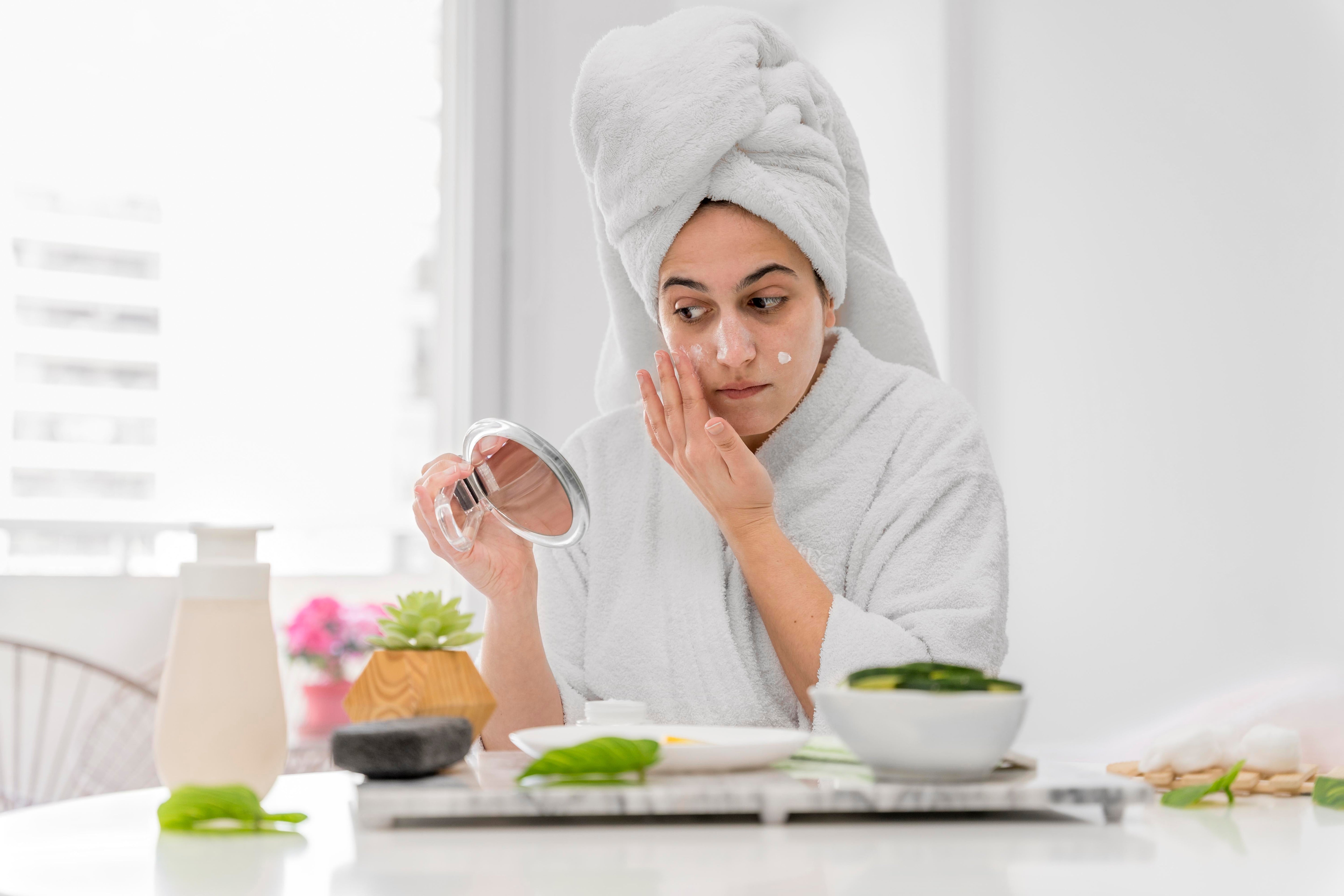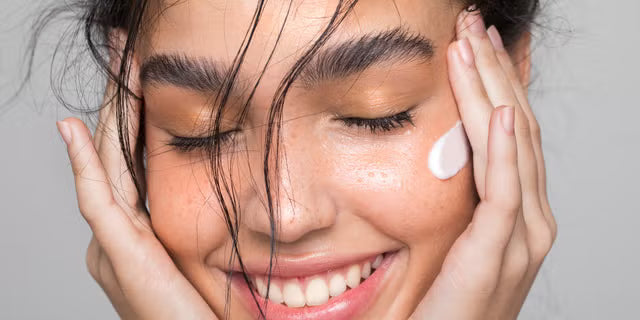
How to Reduce Skin Pigmentation with Brightening Creams
The problem of skin pigmentation is a widespread skin issue that many people face. Even if it is dark spots, uneven skin, or melasma, this issue can impact anyone and is usually caused by different aspects, such as extreme sun exposure, acne scars, earlier aging, or hormonal changes. Brightening creams are the most effective choices to lower pigmentation and gain an even skin tone. In this article, we will discuss how to reduce skin pigmentation with a brightening cream.
How to Reduce Skin Pigmentation with Brightening Creams | What is Skin Pigmentation?
Skin Pigmentation means the color of your skin tone, determined by a pigment called melanin. If your body produces an excessive amount of melanin, then dark patches or spots can form on your skin, leading to hyperpigmentation. It can be a result of different aspects, such as:
- Sun Exposure: longer exposure to UV radiation produces melanocytes cells that synthesize melanin, causing sun spots.
- Acne Scarring: Post-inflammatory hyperpigmentation happens after the recovery of an acne wound, leaving a dark spot on the skin.
- Hormonal Changes: Hormonal changes, such as pregnancy, birth control, and other hormonal imbalances, can cause melasma, which usually forms as dark patches on the face.
- Aging: With aging, skin becomes more inclined to develop dark spots and uneven skin color.
- Genetics: Some people are genetically inclined to developing pigmentation.
How Do Brightening Creams Help?
Brightening creams are specially developed to decrease the formation of hyperpigmentation and even out the tone of skin. They have elements that stop the production of melanin and enhance skin restoration, leading to more glowing and even skintone.
Here is how brightening creams work:
Inhibiting Melanin Production:
Substances such as niacinamide, Vitamin C, and arbutin prevent the skin's melanin production. In other words, these creams inhibit melanin production to treat dark spots while discouraging new ones from forming.
Exfoliation of the Skin:
Acids such as glycolic acid, lactic acid, and salicylic acid work by gently exfoliating the skin's surface and removing dead skin cells to expose newer and more evenly pigmented skin below. This aids in fading pigmentation with time.
Reducing Inflammation:
Anti-inflammatory agents such as licorice extract and niacinamide soothe and calm the skin while minimizing redness and pigmentation caused by inflammation.
Hydration and Skin Barrier Repair:
Moisturized skin retains roundness, is calm, and is less prone to discoloration. Many brightening creams contain ingredients such as hyaluronic acid to hydrate the skin and support the skin barrier.

Key Ingredients in Brightening Creams And How They Work?
For choosing a perfect brightening cream, it is necessary to know about its ingredients that which ingredients are the most effective for lowering skin pigmentation. Here we mentioned some common ingredients found in a brightening cream and how they work:
Niacinamide (Vitamin B3)
- How It Works: Niacinamide lowers the movement of melanin to the surface of skin, fading dark spots. Also, it enhances skin elasticity and strengthens the skin barrier, controlling further pigmentation.
- Ideal For: All skin types, particularly sensitive skin and acne-prone skin.
Vitamin C (Ascorbic Acid)
- How It Works: Vitamin C is a powerful antioxidant that illuminates the skin by balancing free radicals, which can generate pigmentation. Also, it interferes tyrosinase, an enzyme implicated in melanin production.
- Ideal For: Dull skin, sunspots, and a brighter skin tone.
Arbutin
- How It Works: Arbutin is a hydroquinone derivative of natural origin that helps inhibit the synthesis of melanin. It is a very gentle option for people with sensitive skin.
- Ideal For: Sensitive skin or mild pigmentation concerns.
Kojic Acid
- How It Works: Kojic acid is of fungal origin, and its inhibitory effect on tyrosinase enzyme causes inhibition of melanin synthesis, thereby lightening the skin and reducing the formation of dark spots.
- Ideal For: Sunspots, freckles, and melasma-prone skin.
Licorice Extract
- How It Works: Licorice extract contains glabridin that inhibits the synthesis of melanin. It also has anti-inflammatory effects that calm and soothe the skin.
- Ideal For: Sensitive and irritated skin with pigmentation.
Retinol (Vitamin A)
- How It Works: Retinol stimulates collagen production and accelerates skin turnover. In doing so, it helps fade dark spots from acne, aging, or sun damage while improving overall skin texture.
- Ideal For: Oily and acne-prone skin, or deep pigmentation in some cases.
Best Practices: How to Use Brightening Creams Effectively
To get maximum results from brightening creams, follow this procedure:
- Patch test - Perform a patch test before applying it to the face
- Start Slowly - By using 2 to 3 times weekly to adjust
- Use at Night - Because many ingredients, like retinol or vitamin, can make skin more sensitive.
- Include with Sunscreen - Using sunscreen of SPF 30 is crucial to protect from sun damage.
- Regular Application - Be consistent with your skincare routine and allow many weeks for the best possible result.
Lifestyle Habits That Enhance Brightening Cream Effectiveness
To get an extra punch of treatment from your brightening cream, here are some habits recommended to be incorporated into your daily routine:
- Wear Sunscreen Every Day: Keep new pigmentation at bay by applying sunscreen every day and give your skin protection against detrimental UV rays.
- Stay Hydrated: Drinking plenty of water will keep the skin moisturized and help the skin rejuvenate.
- Avoid Smoking and Excessive Drinking: These can keep your pigmentation active, working against your fading process.
- Eat a Healthy Diet: A diet full of antioxidant-rich foods (fruits, vegetables, and green tea) helps in fighting free radicals that lead to pigmentation.
Conclusion
In conclusion, brightening creams can effectively decrease skin pigmentation and stimulate an even skin tone. By selecting products with key elements, such as niacinamide, vitamin C, and arbutin, you can control dark spots and improve face glow. Constant use, mixed with daily sunscreen and a healthy lifestyle, will maximize results for more radiant skin.
FAQs for How to Reduce Skin Pigmentation with Brightening Creams
Question 1: Can brightening creams be used on any skin type?
Answer: Yes, brightening creams can be applied to any skin type. But sensitive skin should use those with soothing agents such as niacinamide and arbutin. A patch test should always be done before applying the cream to the face.
Question 2: How quickly can we expect results after using brightening creams?
Answer: Almost 4 to 6 weeks to start noticing any change in pigmentation. If it is deep pigmentation, such as melasma, it might even take up to 2 to 3 months.
Question 3: Are brightening creams suitable with other skincare products?
Answer: Yes, you can apply brightening creams together with other skincare products. Regardless, do not use multiple actives together, such as vitamin C and retinol to avoid irritation.








